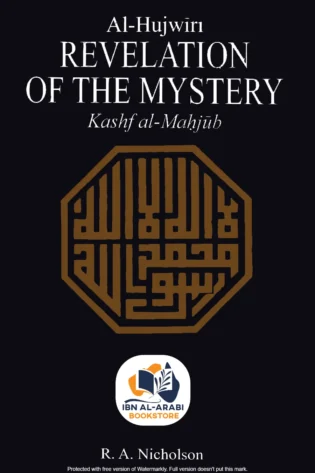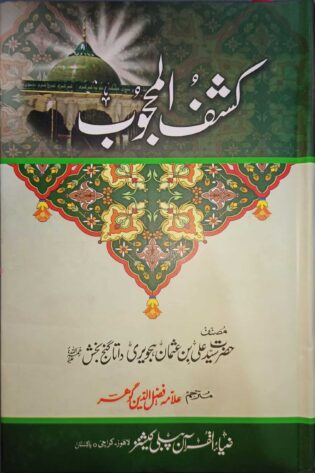- Your cart is empty
- Continue Shopping
علی بن عثمان ہجویری
Abu ‘l-Hasan Ali al-Ghaznawi al-Jullabi al-Hujwiri, known as Ali al-Hujwiri, was an 11th-century Sunni Muslim mystic, theologian, and preacher from the Ghaznavid Empire. He is famous for writing “Kashf al-maḥjūb” (Unveiling of the Hidden), considered the earliest formal treatise on Sufism in Persian. Ali Hujwiri is credited with significantly contributing to the spread of Islam in South Asia through his preaching, making him one of the key figures in the region’s Islamic history. He is venerated as the main wali (saint) of Lahore, Pakistan, and his tomb-shrine, known as Data Darbar, is one of Pakistan’s most revered shrines. Today, he remains a well-known and respected figure in the daily practice of Islam in South Asia. Ali Hujwiri was born in Ghazni, Afghanistan, and he traveled extensively, gaining Sufi training from eminent teachers before settling in Lahore, where he became a renowned preacher and teacher. He passed away with the reputation of a great saint, and his tomb continues to be a place of pilgrimage and reverence.





